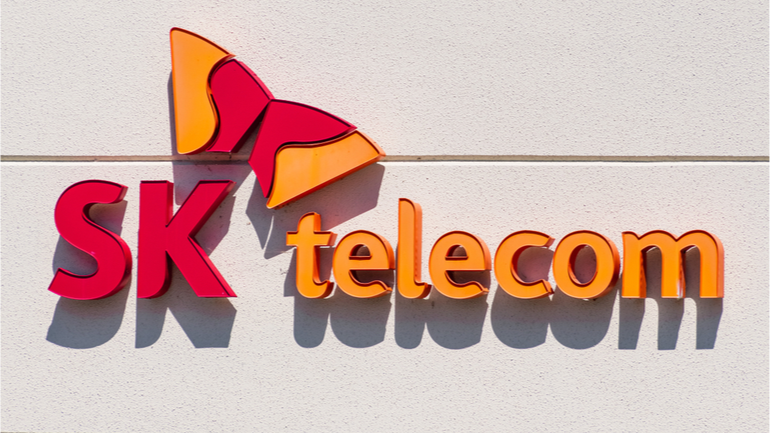TIA releases supply chain security standard The Telecommunications Industry Association (TIA) has compiled the SCS 9001 specification, which it claims is the world’s first supply chain security standard designed particularly for the ICT industry. The SCS 9001 standard applies to all ICT sector goods, including software, hardware and services that are linked to the association’s global networks. SCS 9001’s goal is to validate end-to-end cyber and physical security throughout ICT network infrastructure. The new standard is based on a Quality Management System (QMS) that operationalizes industry best practices and recommendations such as ISO 27001, the Prague Proposals, applicable NIST standards, and the CSIS Criteria for Security and Trust. Read more at: https://tinyurl.com/2p8hzdru Metro by T-Mobile US now part of the Affordable Connectivity Program Metro by T-Mobile has joined the federal government’s Affordable Connectivity Program (ACP). All eligible Metro by T-Mobile customers, new and old, will be able to obtain free…
DIDWW, a leading global provider of virtual phone numbers to operators and businesses all over the world, has further expanded the coverage of its two-way SIP trunking services and voice & SMS-enabled mobile DIDs, which are now available in 17 countries. Thailand and Russia are the latest additions to this solution, which creates unique opportunities for DIDWW customers to implement and benefit from a wide range of business cases. The Ireland-based telecom operator stands out in the cloud communications industry for its unique feature of providing both SMS and voice functionalities on the same virtual phone number. Through the power of VoIP technology, mobile phone numbers no longer need to be allocated to a specific mobile device. In addition, while being utilized in the cloud, these numbers maintain two-way voice and SMS functionality, making them a huge asset for businesses looking for greater efficiency, flexibility, and scalability. All the above mentioned capabilities…
AWS announces 3 new Local Zones AWS has announced that AWS Local Zones in Atlanta, Phoenix and Seattle are now generally available. Customers in these three metro regions can utilize these new Local Zones to deliver apps that require single-digit millisecond latency to end users or for on-premises deployments. The company presently has 17 Local Zones spread over 16 metropolises. Each zone provides select services inside Local Zones near population centers, typically where Amazon does not already have a data center footprint. Read more at: https://tinyurl.com/4ahzesr3 The Club collaborates with Google Cloud The Club, HKT’s loyalty program and digital enterprises arm, has inked a collaboration agreement with Google Cloud to build a hyper-personalization platform named ‘Copernicus.’ This platform will be integrated throughout The Club’s business pillars into its digital environment. The Club hopes to give clients a personalized online digital experience by combining the network and database with Google Cloud…
Consolidated Communications launches new gigabit service Consolidated Communications has introduced Fidium Fiber, a new Gigabit consumer fiber internet brand with an entirely new customer experience. Fidium Fiber internet will first be available in certain locations in Northern New England, providing symmetrical, Gigabit internet to residential consumers with no data limitations. Fidium provides simple, uncomplicated plans and pricing, with a range of high-speed fiber services beginning at $35 per month. Fidium is currently available in communities throughout Maine, New Hampshire and Vermont, with new locations being added on a weekly basis throughout Northern New England. Read more at: https://tinyurl.com/2m53cs8n Nokia introduces SaaS services Nokia announced the launch of several Software-as-a-Service (SaaS) applications for communication service providers (CSPs), with the objective of providing operators with a more cost-effective, flexible, and customer-centric approach for running existing networks and delivering new services. Nokia’s approach to SaaS for CSPs is to provide new software that…
Google introduces Distributed Cloud In order to address the needs of its enterprise customers, Google has announced their Distributed Cloud, which will allow users to balance their workload on the public cloud and private infrastructure. It is “a portfolio of solutions consisting of hardware and software that extend our infrastructure to the edge and into your data centers,” commented Sachin Gupta the GM and VP of Product for IaaS at Google. Built on Anthos, the Google Distributed Cloud is the perfect platform for local data processing, edge computing and on-premises modernization. Read more at: https://tinyurl.com/mc2ye95c Facebook rolls out Live Audio Rooms for creators worldwide Live Audio Rooms, Facebook’s new feature designed to help public figures and groups to connect with their communities, has been released to a global audience. First launched only in the US back in June and limited to only iOS users, the solution…
SK Telecom, South Korea’s leading mobile carrier, recently launched a new subscription service and also purchased a 20% stake in Korea Content Platform (KCP), a US-based joint venture of Korean terrestrial broadcasters. In addition, the company began monitoring marine pollution with Hoseo University and the Korea Atomic Energy Research Institute. On Sunday, SK Telecom announced that it had finalized the acquisition of a 20% shareholding in KCP for $25.8 million in order to expand the content portfolio and audience base of its over-the-top (OTT) platform Wavve. According to industry experts, the presence of KCP in the United States will aid in the creation of synergy with Wavve. In addition, the company has introduced a suite of subscription services, named ‘T Universe’, for its clients, which appear to be a collection of ecommerce services. While there will be several subscription packages available, the main one is called Universe Pass,…
Google to use its own chips for the new Pixel phones Google has announced that its next Pixel smartphones will be available in the fall, powered for the first time by an in-house developed chip. Tensor, Google’s first mobile system on a chip, will be used in the Pixel 6 and Pixel 6 Pro. Tensor is a single chip that integrates a set of processing units and enhances computational capacity in an energy-efficient manner. Google has not revealed who will manufacture the chips for the new Pixel phones. Read more at: https://tinyurl.com/xsprb7ap Lumen to sell its ILEC assets Lumen Technologies announced that it has entered an agreement to sell its Incumbent Local Exchange Carrier (ILEC) business in 20 states, including its consumers, small business, wholesale, and mostly copper-served enterprise customers and assets, to funds managed by Apollo Global Management affiliates for $7.5 billion. Lumen will maintain its ILEC assets in…
Vodafone, in partnership with Nokia, has released a machine learning (ML) solution, operating on Google Cloud, to rapidly detect and eliminate network anomalies before they affect Vodafone’s end customers. Built using Nokia Bell Labs technology, the Anomaly Detection Service automatically recognizes unusual behavior in a mobile cell area. Typically, this behavior, if unnoticed for a prolonged period of time, could affect the quality of service. The solution gives Vodafone engineers the ability to rapidly resolve issues such as congestion on mobile sites, interference, unexpected delays, difficulties in transferring calls between different cells and call setup failures. Besides anomaly detection, the algorithm also pinpoints patterns of change that allow Vodafone to address performance issues before they affect the customer. The operator forecasts that the anomaly detection service will be able to automatically detect and resolve 80% of mobile network problems and capacity needs. This new innovative solution is…
Google Cloud and Ericsson team up to deliver 5G and Edge cloud solutions for telcos The two tech giants – Google Cloud and Ericsson – have come together to jointly develop 5G and edge cloud solutions to help communications service providers (CSPs) digitally transform and unlock new enterprise and consumer use cases. Google Cloud and Ericsson are developing new solutions at Ericsson’s Silicon Valley D15 Labs, a state-of-the-art innovation center where advanced solutions and technologies can be developed and tested on a live, multi-layer 5G platform. Thomas Kurian, CEO at Google Cloud, said that organizations have a tremendous opportunity to digitally transform their businesses with 5G, using cloud capabilities like artificial intelligence and machine learning at the edge. Read more at: https://tinyurl.com/2c5sez86 DIDWW implements the STIR/SHAKEN technology The global telecommunication services provider, DIDWW, has implemented caller ID authentication through the STIR/SHAKEN set of standards. These standards act as the framework…
New security features for Google Workspace and Google Drive Google has unveiled new security tools that include client-side encryption for Workspace and several enhanced data protection features in the platform’s Drive service. The tech giant said there will be new trust rules and labels for Drive to classify files and apply controls based on their sensitivity levels. These added security features are the result of several factors, including Google’s “security first” philosophy, the rapid increase in remote work environments due to the pandemic, and the company’s experience with its BeyondCorp zero trust security model. In addition, Google is also increasing phishing and malware protection in Workspace. Read more at: https://tinyurl.com/ygc7yhw7 Facebook partners with Internet service providers D-VoiS and Netplus Facebook has announced new partnerships in India with Internet service providers (ISPs) D-VoiS and Netplus. These ISPs will use Facebook Connectivity’s Express Wi-Fi platform to provide public Wi-Fi hotspots in various…













